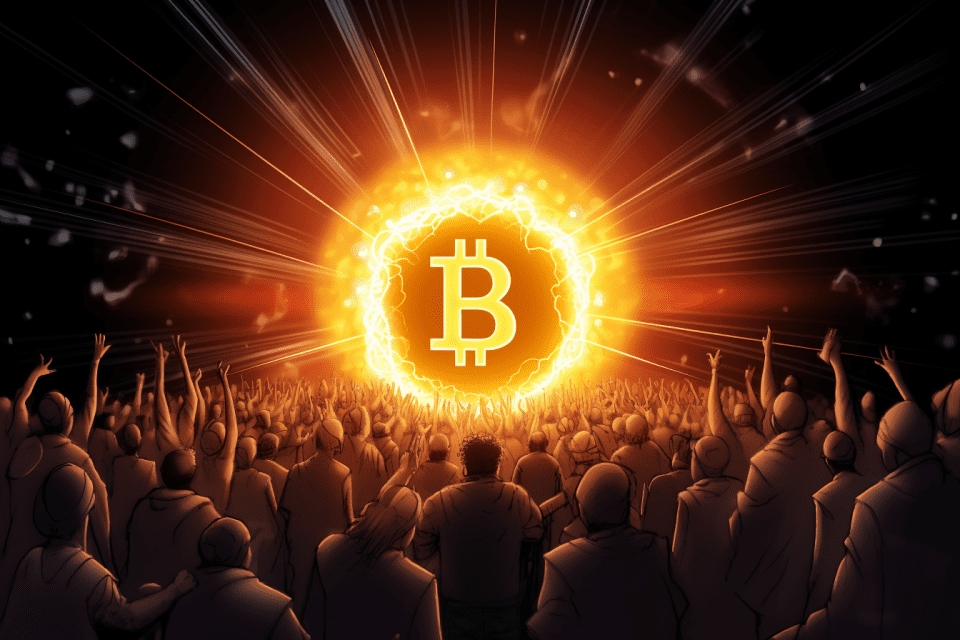The Rise of Ordinals: Injecting Innovation and Fun into Bitcoin
Bitcoin, the pioneer cryptocurrency, has long been hailed for its stability and reliability. However, this has also made it somewhat stagnant and lacking in excitement. While second- and third-generation chains have taken center stage in terms of innovation and versatility, a new technology called Ordinals is bringing a wave of innovation back to Bitcoin.
In 2023, Bitcoin’s ecosystem experienced rapid development with the emergence of new asset types like Ordinals NFTs and BRC-20 tokens. These innovations have ignited enthusiasm within the community and led to a significant increase in BTC miners’ earnings.
The Birth of Ordinals
Ordinals is a protocol built on top of the Bitcoin blockchain that allows for the issuance of tokens. Each Bitcoin can be broken down into 100 million units called sats, and Ordinals enables the attachment of unique identifiers to these sats. This groundbreaking concept, developed by Casey Rodarmor, has paved the way for an infinite number of tokens to be traded on the Bitcoin network.
Initially, only tech-savvy Bitcoiners could mint and trade Ordinals tokens. However, code-free solutions have emerged, making it more accessible to the broader community, including Ethereum users. While NFTs were the first use case for Ordinals, the same technology can be used to issue fungible tokens similar to Ethereum’s ERC-20 tokens. In fact, the token standard for Bitcoin-native assets is even named BRC-20.
The Emergence of BRC-20 Tokens
With the introduction of Ordinals, several BRC-20 projects have emerged, forming a budding tokenized ecosystem centered around Bitcoin. These tokens have gained market traction, with some even making their way to tier-1 exchanges. The combined market cap of all BRC-20 tokens is already over $1 billion, suggesting significant potential for growth.
One notable BRC-20 token is $SATS, also known as Bitcoin’s memecoin. With a total supply of 2,100,000,000,000,000, $SATS represents the entire Bitcoin supply multiplied by 100 million. Projects like $SATS bring back the fun factor to Bitcoin and help educate newcomers about the fundamental characteristics of the cryptocurrency.
Taproot and the Future of Bitcoin Tokens
The ability to issue tokens on the Bitcoin network was made possible by the Taproot upgrade, which went live in November 2021. Taproot allows for data to be added to block space, enabling the minting of tokens on Bitcoin. The BRC-20 tokens work differently from ERC-20 tokens, given that they are a workaround for a network that wasn’t initially designed to support tokens.
While the architecture of BRC-20 tokens may be unconventional, it is fostering the formation of communities and shared interests similar to what happened with Ethereum’s ERC-20 tokens. The BRC-20 landscape is still in its early stages, but key infrastructure projects are already connecting Bitcoin tokenization to Ethereum Virtual Machine (EVM) chains. This progress opens up exciting opportunities for those who embrace BRC-20 tokens early on.
Reviving the Experimental and Creative Spirit
For those tired of Ethereum’s perceived stagnation or those who don’t align with Bitcoin maximalists, Ordinals and BRC-20 tokens bring back the fun and experimental nature of crypto. This movement represents a return to Bitcoin’s roots as a hub of innovation and creativity. It not only offers the chance to make money but also promotes a deeper understanding of Bitcoin and spreads memes along the way.
While Bitcoin’s codebase may have brought stability, Ordinals is injecting innovation and excitement back into the cryptocurrency. With the rise of BRC-20 tokens, the future of Bitcoin’s tokenized ecosystem looks promising. As the landscape continues to evolve, it will be fascinating to see the opportunities that emerge and the impact they have on the crypto industry as a whole.
Disclaimer: This article is for general information purposes only and should not be taken as legal or investment advice. The views and opinions expressed in this article are those of the author and do not necessarily reflect the views of Cointelegraph.

